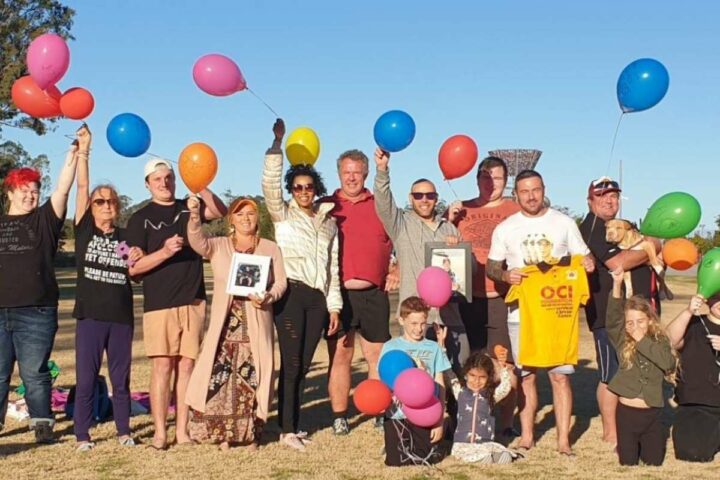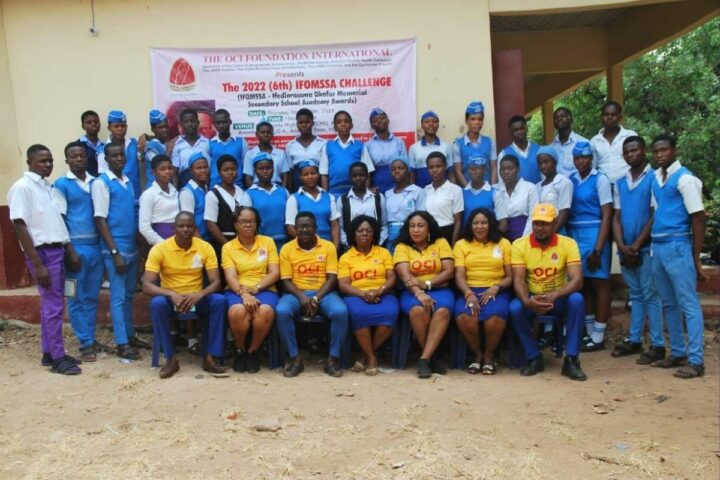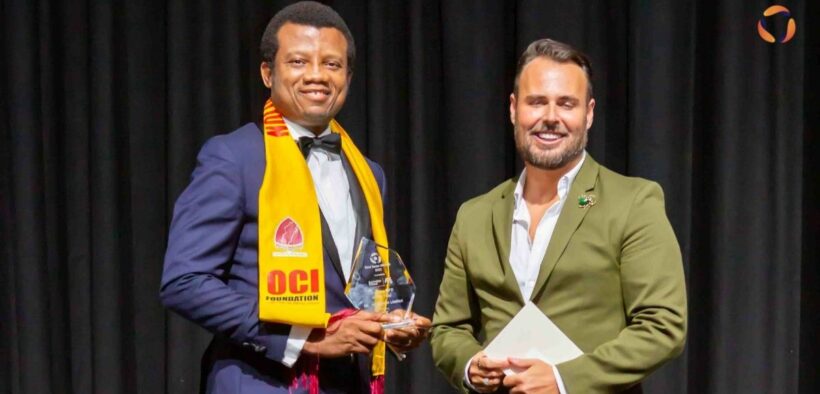Education and healthcare are critical for every nation. However, many nations are still underfunded when it comes to receiving quality healthcare and education.
A dream to never let poorly funded education and healthcare limit the potential of students and individuals is what the winner of Third Sector Awards 2022 Emerging NFP of the Year, OCI Foundation Limited aims to do.
Related: Third Sector Awards 2022 Winners Announced
The OCI Foundation Limited’s founder Dr Onyebuchi Chris Ifediora accomplished his secondary and university education in Nigeria, where he witnessed first-hand how poorly funded education and lack of proper access to health services stunted the growth potential of students.
Having overcome the obstacles himself, Dr Chris swore that whenever he could, he would do all within his powers to ensure that the succeeding generation would not have to experience their dreams cut short by the same circumstances.
Using the motto “We Rise, By Lifting Others”, Dr Chris aims to build a society where every scholar can achieve their best academic potential irrespective of their financial background.
“I also hoped that our beneficiaries, particularly those not in formal education, will get equipped with the resources, skills and tools that will enable them to surmount major obstacles in their paths to success,” Dr Chris said.
Dr Chris shared that the award won by the OCI Foundation at the Third Sector Awards 2022 was a reassuring validation of the foundation’s commitment to the visions and dreams that birthed the OCI Foundation.
“Winning the “2022 Emerging NFP of the Year Award” was a thrilling experience that offered an undeniable feeling of accomplishment,” he said.
 The Australian-Nigerian NFP organisation, which was established in 2018 to Promote and Advance Health, Education, and Social and Public Welfare among disadvantaged communities, has had its fair share of setbacks, particularly with fundraising.
The Australian-Nigerian NFP organisation, which was established in 2018 to Promote and Advance Health, Education, and Social and Public Welfare among disadvantaged communities, has had its fair share of setbacks, particularly with fundraising.
“We have had issues with fund-raising, recognition, and support within Australia. Many donors generally do not respond to our requests,” he said. “Among the reasons for this, we gather, is that the attention of donor institutions in Australia is largely on Asia-Pacific countries, and not in Africa.”
While this hindrance has affected the foundation’s paid and volunteer personnel, Dr Chris hopes that the emergence of the OCI Foundation into the Australian consciousness will help channel some of the support to Africa’s disadvantaged communities.
“Our activities and capabilities offer ‘low-hanging fruits’ to potential partners, and, given our (DGR) status with the Australian Tax Office, all support/donations to the OCI Foundation are fully tax-deductible,” he said.
Dr Chris has made significant changes within Nigeria and Australia through the Foundation’s abundance of projects that have inspired research within many Australian universities.
 One out of the six sets of scholarships offered by the Foundation was established in 2020 following the sudden death of a young, teenage Australian, Bradley Hope. The Cyfed-Bradley Hope project annually sponsors the university training of a number of young Nigerian undergraduates.
One out of the six sets of scholarships offered by the Foundation was established in 2020 following the sudden death of a young, teenage Australian, Bradley Hope. The Cyfed-Bradley Hope project annually sponsors the university training of a number of young Nigerian undergraduates.
Dr Chris also shared ground-breaking findings involving a collaboration between the OCI Foundation and Griffith University led to the development of the “Arm Our Youths (ArOY) Anti-Cancer Health Campaign”.
“Arguably, this Campaign now offers one of the most promising measures that will fast-track the global elimination of cervical cancer, given that it holds the potential to allow most developing countries to bridge the gaps in anti-cervical cancer services between them and the developed world.”
Dr Chris, who is a Harvard-certified healthcare leader highlighted that the OCI Foundation’s tripod of activities is currently changing the health narrative in Nigeria and Australia.
“The next 1 to 3 years will see these projects continued. Efforts are also in place to see these solidified, empirically evaluated, and further broadened to reach more groups in these areas and beyond.”
Menchie Khairuddin is a writer Deputy Content Manager at Akolade and content producer for Third Sector News. She is passionate about social affairs specifically in mixed, multicultural heritage and not-for-profit organisations.





































































































































 The Australian-Nigerian NFP organisation, which was established in 2018 to Promote and Advance Health, Education, and Social and Public Welfare among disadvantaged communities, has had its fair share of setbacks, particularly with fundraising.
The Australian-Nigerian NFP organisation, which was established in 2018 to Promote and Advance Health, Education, and Social and Public Welfare among disadvantaged communities, has had its fair share of setbacks, particularly with fundraising.
 One out of the six sets of scholarships offered by the Foundation was established in 2020 following the sudden death of a young, teenage Australian, Bradley Hope. The Cyfed-Bradley Hope project annually sponsors the university training of a number of young Nigerian undergraduates.
One out of the six sets of scholarships offered by the Foundation was established in 2020 following the sudden death of a young, teenage Australian, Bradley Hope. The Cyfed-Bradley Hope project annually sponsors the university training of a number of young Nigerian undergraduates.















